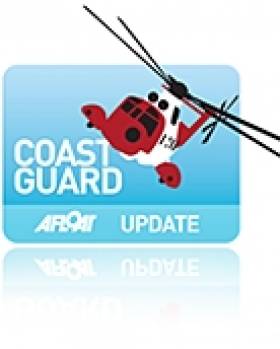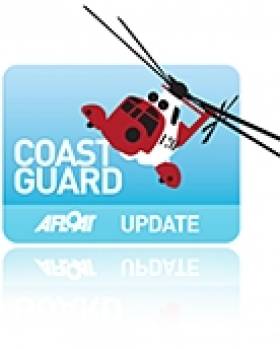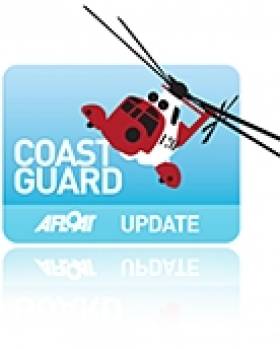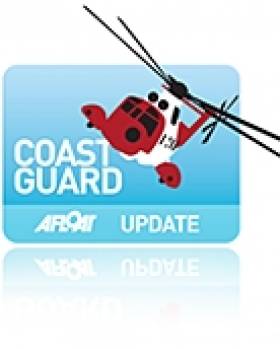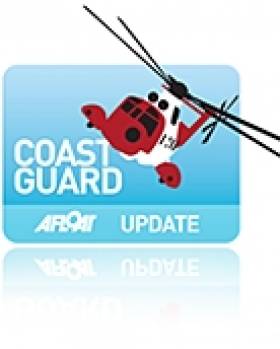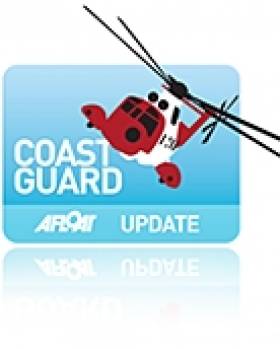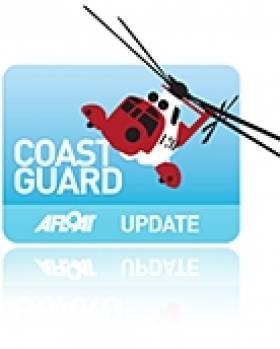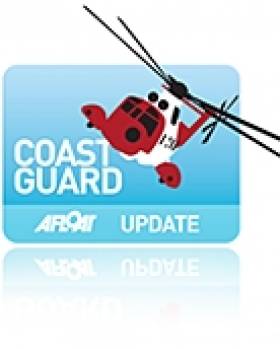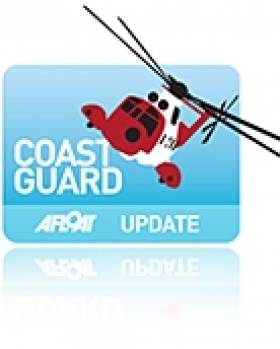Displaying items by tag: streamlining
It's Official - Bangor Coastguard Will Stay Open
#COASTGUARD - The UK's shipping minister has confirmed that Northern Ireland will retain its only coastguard station, the News Letter reports.
Mike Penning made the survival of Bregenz House official at the House of Commons yesterday, marking the end of what has been a successful campaign by the station's supporters.
As previously reported on Afloat.ie, the control centre at Bangor was given a last-minute reprieve by the minister in July under revised proposals to streamline the UK's coastguard network.
Bregenz House will be one of eight stations set to remain following the cutbacks, and one of just three across the whole UK that will have 24-hour service.
However, concerns are still being expressed about the wider area that the Bangor station will now have to cover, with the coastguard workers' union calling for assurances that the "same level of service" will be preserved.
NI First Minister Highlights Need for Local Knowledge Over Clyde Coastguard Closure Threat
#COASTGUARD - Northern Ireland's First Minister has highlighted the need for local knowledge in light of the threatened closure of the Clyde coastguard station in Scotland.
As previously reported by Afloat.ie, the control centre at Greenock is set to be scrapped under the UK government's plans to streamline Britain's coastguard network.
Some 31 jobs will be lost in the closure, while rescues on the River Clyde and western Scotland will in future be handled from Northern Ireland's Bangor station on Belfast Lough - which itself was saved from the chop following a review over the summer.
In a letter to MSP for West of Scotland, Stuart McMillan, First Minister Peter Robinson said that his and his government's concerns "centre on the safety of the people using our coasts and seaways, which could be jeopardised by the loss of local knowledge and experience."
McMillan welcomed his support, adding that "despite the consultation period being over, it is not too late for the UK Government listen to the growing number of voices saying that this must be reversed.
“Closing coastguard stations down including Clyde is a short-sighted and dangerous move which puts saving money over saving lives.”
Online Petition Challenges Cuts to UK Coastguard Network
A campaigner on Twitter is encouraging supporters to sign an online petition against the closure of coastguard stations across the UK.
So far almost 7,000 signatures have been added to the petition started by Twitter user @Coastguard_SOS in protest at the UK government's plans to streamline the Maritime and Coastguard Agency's nationwide network of rescue centres from 19 to 11.
As previously reported on Afloat.ie, campaigners in Scotland have made a desperate plea to save the Clyde station from closure in a public consultation.
Northern Ireland's rescue command centre at Bangor on Belfast Lough is among those saved from the chop following a review of reform proposals this past summer.
But concerns remain that resources will be stretched too thin if fewer stations are responsible for broader areas.
"The revised proposals are also unacceptable not least on the basis that vital local knowledge will continue be lost and therefore lives will continue to be out at risk on our coastlines," the petition warns.
Reprieve for Holyhead Coastguard a 'Victory for People Power'
A former mayor of Holyhead has sung the praises of Holyhead's coastguard station to Afloat.ie.
Commenting on our recent report on plans to close Liverpool's coastguard station, Cllr KR Roberts said it was "a victory for people power" that Holyhead in north Wales joins Bangor in Northern Ireland among those stations reprieved under revised proposals for the streamlining of Britain's coastguard network.
"Holyhead Coastguard covers a vast area of the Irish Sea in close proximity to the Irish coast, where it joins forces with their Irish Coast Guard colleagues to provide a service of maritime safety to both commercial vessels and leisure craft alike," said Cllr Roberts.
"Holyhead Coastguard also provide maritime safety cover to over 300 miles of Welsh coastline that welcomes a vast variety of leisure craft from Ireland.
"As a past mayor and local councillor in Holyhead I am proud to promote the long traditions of maritime connections between Wales and Ireland. However I am sorry to see the loss of any coastguard station - in this case Liverpool Coastguard, which provides maritime safety cover to the northwest coast of England and the Scottish borders around the Solway Firth."
Cllr Roberts added that these areas would be taken over by Holyhead "with resilient support from Belfast and Milford Haven Coastguards".
Concerns Over Belfast Coastguard Jobs
Concerns persist over the future for Northern Ireland’s coastguard service staff - despite the British government backing down from plans to close the Bangor search and rescue centre.
As previously reported on Afloat.ie, the Bregenz House station was given a reprieve under revised proposals to streamline the UK's coastguard network.
However the coastguard workers' union told the Belfast Telegraph that assurances must still be given to preserve "the same level of service”.
Ian Graham of the Public and Commercial Services (PCS) union said: "The numbers they’re quoting in the proposals are not providing this service with enough staff.
"Lives are still at risk with these proposals, there isn’t one UK coastguard I have spoken to that doesn’t disagree with that. We need to keep fighting to safeguard the service. This was a small victory.”
The Belfast Telegraph has more on the story HERE.
Liverpool Coastguard Closure 'Will Put Safety at Risk'
A British MP has criticised plans to close Liverpool's coastguard station as 'dangerous'.
The Liverpool command centre - which also covers the Irish Sea - is one of eight that face the axe under revised proposals to streamline Britain's coastguard network that saved Belfast's search and rescue station from the axe.
Wirral MP Angela Eagle said the move "is all about saving money, not safety" and "will put safety at risk".
She told the Wirral Globe: "There’s still 12 weeks of consultation. But there real issues which need to be addressed. For example, a coastguard operator based in Northern Ireland will know nothing about what’s going on in Liverpool Bay.
"We have a huge maritime history and it’s being eroded by these cuts.”
The Wirral Globe has more on the story HERE.
Bangor's Future 'A Victory for People Power'
The decision to keep open Northern Ireland's only dedicated search and rescue base is a victory for people power, says the Belfast Telegraph.
As previously reported on Afloat.ie, the station at Bangor was saved from closure following a review of plans to streamline the UK's coastguard network.
In an editorial on Friday, the paper said: "Northern Ireland really is a place apart geographically and no-one was convinced that the waters around our coastline from Lough Foyle to Strangford and the inland waterways of Lough Neagh and Lough Erne could be safely monitored by what amounted to remote control if Belfast Coastguard was closed."
The preservation of the service at Bangor is also "a victory for common sense".
The paper added: "From now on every person plucked from the sea or the loughs will utter a heartfelt thanks to those who fought to keep the service locally-based and they will also praise Transport Minister Phillip Hammond for sparing it from closure."
Bangor Coastguard Centre Saved from the Chop
Northern Ireland's only dedicated search and rescue command centre has been saved from closure following a review of plans to streamline the UK's coastguard network.
BBC News reports that UK Transport Minister Phillip Hammond told the House of Commons today that the coastguard station at Bangor would remain open and operate 24 hours a day, allaying concerns that the station would be reduced to daytime-only service.
"Had this decision gone the wrong way, it would not simply have been a blow for the staff here in Bangor, but for all of Northern Ireland," commented North Down MLA Peter Weir.
The Bangor station will be one of eight full-time centres across the UK that remain open, while the stations at Clyde, Forth, Portland and Liverpool will be closed.
BBC News has more on the story HERE.
Decision on UK Coastguard Cuts Next Month
The final decision on plans to streamline the UK's network of coastguard centres will be taken next month, the News Letter reports.
As previously reported on Afloat.ie, the station at Bangor - Northern Ireland's only 24-hour search and rescue co-ordination centre - is at risk of closure under the proposed cuts.
Shipping Minister Mike Penning says the decision will be announced on 19 July, following the report of the Commons Transport Select Committee next week, after which a second consultation period will begin.
He reportedly told a Westminster debate last week that "no change is not an option".
Northern Ireland MPs voiced their opposition at the debate to any reduction of service at Bangor, with David Simpson of Upper Bann saying that it "would have a significant effect on the levels of service and rescue".
The News Letter has more on the story HERE.



























